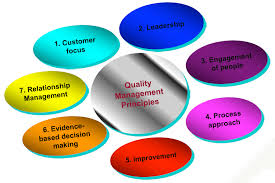Introduction
Many organizations all-over the world have used the ISO9001 quality management system standard as a framework for managing quality assurance within their operations and meeting the expectations of their customers. They have enjoyed the benefits of this structured approach to the control of risk and opportunities in their business.
Quality Assurance in Practice will provide delegates with a sound understanding of a practical approach to developing quality assurance in their organizations. The seminar examines the well-known ISO9001 framework as a foundation for developing quality assurance. The seminar goes on to look at the importance of risk based thinking, the PDCA approach and the process approach. Additionally, the seminar explores other importance aspects of developing a quality management system including the role of audit in organizational improvement and the development of document control to support your system are encompassed in this highly practical and participative seminar.
Objectives
By the end of this training seminar, delegates will be able to:
- State the benefits of the PDCA approach
- Understand the importance of risk based thinking in a quality management system
- Have an awareness of organizational context and what it means in the quality management system
- State the benefits of audit in a quality management system and understand some of the practical requirements of management systems auditing
- Practice audit techniques
- Appreciate the essentials of document control systems
Training Methodology
This seminar is highly participative and delegates will have to opportunity to use case study materials and exercises to reinforce their learning thought-out the seminar. In addition to learning the basic requirements of a quality management system, participants will enjoy a highly participative part of this seminar designed to enable them to practice audit techniques though participative role play.
Organizational Impact
- Develop a greater understanding of the practical implications of managing quality assurance in the organization
- A shared organizational vision for quality assurance and management
- Development of efficiencies in the organization leading to enhanced profitability
- Improvement in leadership skills within the organization
Personal Impact
- Understanding a practical framework for the implementation of quality assurance in an organization
- State the importance of risk based thinking in quality assurance
- Realize the importance of leadership and developing an appropriate quality culture in organizations
- Develop specific practical audit skills
- Appraise a range of requirements for document control systems
Who Should Attend?
- Department managers
- Team supervisors
- Human resources managers
- Finance professionals who want to know more about quality assurance
- Finance audit professionals who want to understand more about management systems auditing
SEMINAR OUTLINE
DAY 1
Designing and Implementing ISO9001
- The PDCA approach
- Risk based thinking
- The organization and context
- Needs and expectation of interested parties
- Significance of effective leadership roles
- Role and responsibilities of leaders in ISO9001
- Culture of quality – the role of TQM
DAY 2
Planning and Operating a Quality Management System
- Establishing policies
- Planning for a quality management system
- Assessing risk and opportunity within a quality management system
- Supporting your system – resources, competence
- Operations, planning and control
DAY 3
Audit as a Management Tool
- Management systems auditing
- The face of a systems auditor
- Requirements of ISO19011 – guidelines for auditing management systems
- Types of systems audits
- Planning audits
- Audit as part of performance monitoring and organizational improvement
DAY 4
Audit in Practice
- Developing a programme of audits
- Planning an audit
- Opening meetings
- Audit questions and use of check lists
- Conducting the audit
- Role play exercise
DAY 5
Document Management in Your Quality Management System
- Building a document control system
- Document life cycles
- Consistency in document appearance, notation and circulation
- Maintaining the integrity of document controls
- Availability of documents to interested parties

